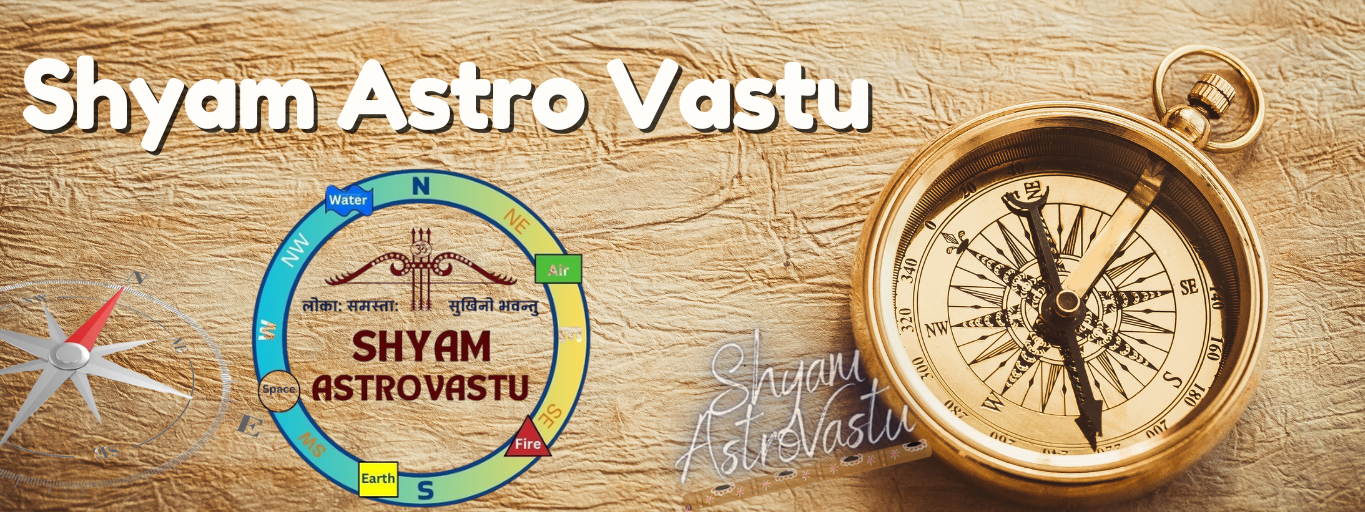वास्तु शास्त्र क्या है वास्तु शास्त्र का उपयोग जाने वास्तु शास्त्र के बारे में
धरती पर रहने वाले हर इंसान की इच्छा होती है वह अपने परिवार के लिए हर प्रकार की सुख सुविधा से युक्त घर का निर्माण कराये. लेकिन बहुत कम लोगो को इस बात की जानकारी होती है की घर का निर्माण किस तरह और शास्त्र अनुरूप कराया जाये की वह घर फलदायक और परिवार के लिए शुभ हो. प्राचीन काल से हमारे शास्त्रों में ‘वास्तु विद्या’ का उल्लेख रहा है जिसमे रहने के स्थान को कैसे अनुकूल और शुभ फलदायक बनाया जाए इसका वर्णन है. यह वास्तु विद्या पूर्णत: वैज्ञानिक आधार पर बनी है जिसमे घर में निश्चित दिशाओ में निश्चित कार्य कर के लिए वर्णन किया हुआ है. वास्तु अनुरूप स्थान फलदायी साबित होता है. तो आज हम वास्तु विशेषज्ञ महेश सारस्वत के सहयोग से इस संकलित लेख में वास्तु शास्त्र की प्रमुख जानकारियाँ देंगे.

वास्तु शास्त्र क्या है ?
Benefit of Vastu Shastra : प्राचीन काल में हमारे ऋषि मुनियों ने मनुष्यों की आवास व्यवस्था और उद्योग व्यवसाय व्यवस्था के विषय में धार्मिक, सांस्कृतिक और वैज्ञानिक दृष्टिकोण के साथ अनेकानेक महत्वपूर्ण दिशा निर्देश दिए थे, घर और व्यवसाय को इन दिए गये निर्देशों के मुताबिक रखने को ही सरल रूप से “वास्तु शास्त्र” कहा जा सकता है.
वास्तु शब्द ‘वस्तु’ से बना हुआ है. वस्तु शब्द से सम्बंधित शास्त्र ही ‘वास्तु शास्त्र’ कहलाता है. मुख्य रूप से ये समझे की वास्तु शब्द की उत्पति ‘वास’ से हुई है यानी जहाँ हम वास करते है, वो घर भी हो सकता है, व्यवसाय की जगह भी हो सकती है. ऐसे स्थान को अपने रहने के अनुसार कैसे बनाये की वह उपयोगी व फलदायी हो, इसका विवरण ‘वास्तु शास्त्र’ में लिखा है. वास्तु शास्त्र प्रकृति के साथ मेल करके प्रकृति में व्याप्त उर्जा का सही लाभ उठाने का एक माध्यम है.
Benefit of Vastu Shastra : वास्तु शास्त्र का उल्लेख पौराणिक काल से होता आया है. सनातन धर्म के प्रमुख पुराणों में इसकी जानकारी मिलती है. वेदों में इसका विवरण पढने को मिलता है. ऋग्वेद तथा अथर्ववेद में वास्तु शास्त्र की जानकारी पढने को मिलती है. पुराणों में मत्स्य पुराण, स्कन्द पुराण, गरुड़ पुराण, वायु पुराण, नारद पुराण, अग्नि पुराण में भी वास्तु का उल्लेख किया हुआ है. इसके अलावा वैदिक साहित्यों में, रामायण, महाभारत, जैन और बौद्ध ग्रंथो में, बृहतसंहिता इत्यादि अनेकानेक ग्रंथो में वास्तु के विश्लेषण पढने को प्राप्त होता है, जिनमे वास्तु अनुरूप भवन की महत्ता बताई गई है.
वास्तु शास्त्र का उपयोग कब होता है ? (Benefit of Vastu Shastra )
वास्तु शास्त्र का उपयोग जब आप घर अथवा व्यवसाय हेतु जमीन खरीदते है, तभी से शुरू हो जाता है. इसके अलावा अगर आप घर अथवा व्यवसाय उपयोग के लिए बना बनाया घर अथवा परिसर खरीदते है तो भी वास्तु अनुसार उसकी जांच करके उस परिसर की अथवा जमीन (प्लाट) की अनुकूलता या प्रतिकूलता जाँच सकते है. हर उस स्थान जिस पर आप वास कर सकते है, उस स्थान पर वास्तु के नियम लगते है। वास्तु अनुरूप उस स्थान पर वास करने से उसके अनेकानेक फायदे मिलते है। वास्तु के अनुसार हर आवास बना हो ये जरुरी नहीं होता. कई बार या ज्यादातर बिना जानकारी के बनाये मकान, आवास, या व्यवसायिक परिसर नुकसान देने लगते है, ऐसे में वास्तु जानकार से सलाह लेकर उसका उचित निराकरण किया जा सकता है।
FAQ of Benefit of Vastu Shastra :
Que.: प्लाट खरीदने से पहले क्या वास्तु एक्सपर्ट से सलाह लेनी चाहिए
Ans: जी हाँ ! और ये लाभदायी होता है
Que.: मकान का नक्शा बनाकर क्या वास्तु विशेषज्ञ को दिखाना चाहिए
Ans: नहीं. नक्शा बनने से पहले वास्तु विशेषज्ञ से विचार विमर्श करना चाहिए.
Que.: वास्तु अनुसार क्या सभी स्थानों को सही रखना आवश्यक है ?
Ans: जी हाँ ! इससे फायदा ही होता है.
Que.: वास्तु पूजा कब करनी चाहिए?
Ans: वास्तु सलाहकार से सलाह लेकर किसी योग्य पंडित से मकान बनने से पहले भूमि पूजन और गृह प्रवेश से पहले वास्तु पूजा अवश्य करनी चाहिए.
Vastu and Usefulness Of Vastu
Vastu Shastra: Meaning and Uses
Vastu Shastra, an ancient Indian architectural science, is the study of the arrangement of physical spaces in harmony with natural forces. The term “Vastu” refers to “dwelling” or “house,” and “Shastra” means “science” or “knowledge.” Rooted in the Vedic tradition, Vastu Shastra is concerned with the design and layout of buildings in a way that balances energies, thereby ensuring peace, prosperity, and well-being for those inhabiting the space. It encompasses the principles of orientation, proportions, elements, and spatial relationships to create an environment that supports a balanced life.

Core Principles of Vastu Shastra
Vastu Shastra operates on the belief that every structure is influenced by five basic elements (Pancha Mahabhutas) — earth, water, fire, air, and space — and their interaction with the cosmos. By aligning these elements with the forces of nature, Vastu aims to create spaces that encourage positive energy, or “Prana.” Some key principles include:
- Orientation and Directions: According to Vastu, the orientation of a building in relation to the cardinal directions (north, south, east, west) plays a crucial role in determining the energy flow within the space. For example, placing the main entrance in the east is believed to invite prosperity and health, while a south-facing entrance may be linked to challenges.
- Room Placement: Vastu outlines specific guidelines for the placement of different rooms within a house or building. For instance, the kitchen should ideally be in the southeast, the bedroom in the southwest, and the study or office in the northeast.
- Elements and Balance: Each direction is associated with one or more elements, and the placement of objects or rooms should correspond with these elements to maintain equilibrium. The northeast, which is believed to be the direction of water and prosperity, is considered the most auspicious.
- Natural Light and Ventilation: Vastu emphasizes the importance of natural light and air circulation, ensuring that spaces are well-ventilated and have adequate sunlight, contributing to a healthy and positive atmosphere.
Uses of Vastu Shastra
- Home Design and Construction: Vastu is widely applied in residential architecture to ensure that homes are built in alignment with natural energies. This can help create a harmonious living environment, leading to enhanced physical health, mental well-being, and overall happiness. Correctly placing rooms and furniture according to Vastu principles is believed to reduce stress and conflicts.
- Business and Commercial Spaces: Vastu is also applied in the design and layout of offices, factories, and retail outlets. For businesses, Vastu can influence productivity, financial success, and a positive work environment. Many business owners consult Vastu experts to maximize prosperity and growth.
- Health and Wellness: Vastu Shastra plays a role in promoting health and well-being by ensuring that spaces are free from negative energy or “Vastu doshas.” Poorly designed spaces, such as improperly placed doors or windows, can lead to imbalances that may manifest as physical or emotional ailments.
- Spiritual Growth and Mental Peace: According to Vastu, living in harmony with nature’s energies contributes to spiritual growth. Spaces that are aligned with Vastu principles help calm the mind, promote concentration, and support meditation practices.
- Real Estate and Property Value: Many people believe that properties designed according to Vastu principles are more attractive in the real estate market, potentially increasing the value and desirability of a property.
If you wish to Buy this: follow this:
In conclusion, Vastu Shastra offers a holistic approach to architecture and design, aiming to create environments that foster balance, prosperity, and well-being. By considering the principles of energy flow, elemental balance, and natural forces, Vastu provides valuable insights for designing homes, workplaces, and public spaces that support a healthy, harmonious life.
Buy:

